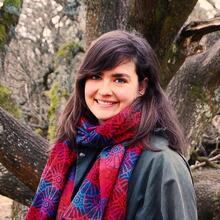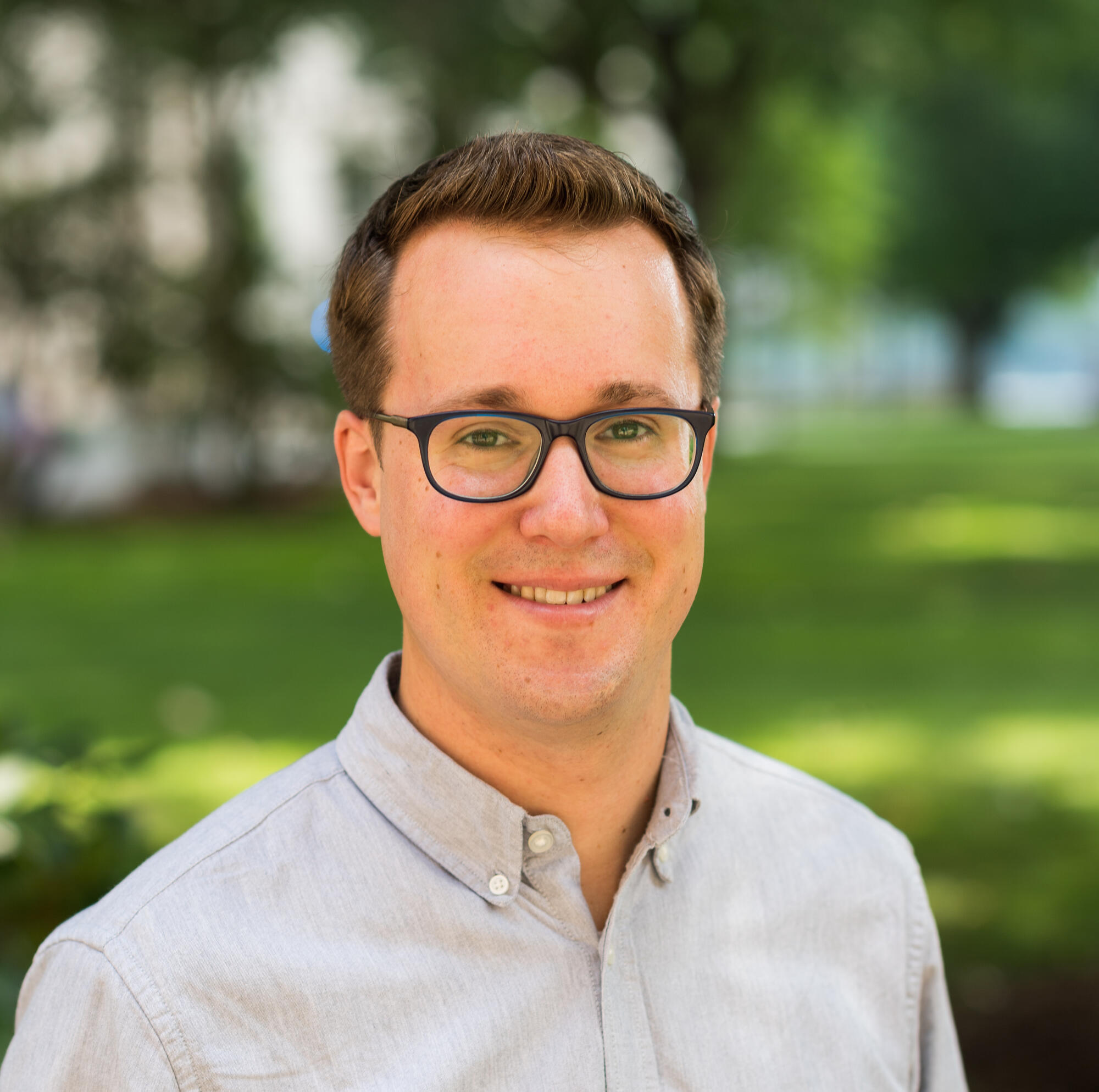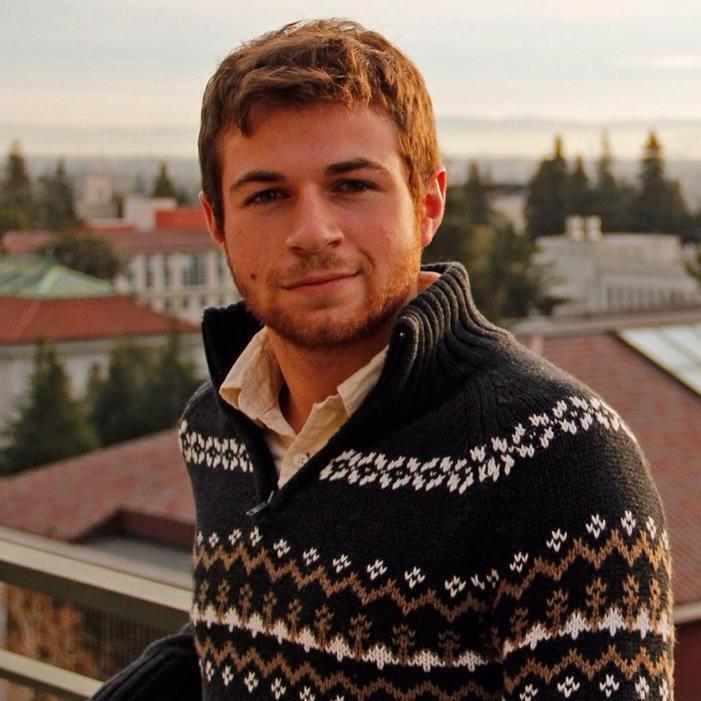
HUCE welcomes new cohort of postdoctoral researchers
The Harvard University Center for the Environment extends a warm welcome to the newest class of Environmental Fellows: Jemma Deer, Jesse Jenkins, Elsa Ordway, Jake Seeley, and A.R. Siders. These fellows will join a group of remarkable scholars who will be beginning the second year of their fellowships. Together, the Environmental Fellows at Harvard will form a community of researchers with diverse backgrounds united by intellectual curiosity, top-quality scholarship, and a drive to understand some of the most important environmental challenges facing society.
 JEMMA DEER
JEMMA DEER
Department: Comparative Literature
Faculty Advisor: Verena Conley
PhD: English, University of Sussex, United Kingdom
Jemma Deer works at the intersection of literary studies, deconstruction, and the environmental humanities. She is interested in the ways in which current ecological crises such as climate change, extinction, and biodiversity loss are working to transform the ways we understand the world and our place within it.
Jemma has an MA in critical theory and a PhD in English from the University of Sussex (UK). Under the heading Radical Animism: Reading for the End of the World, her doctoral thesis elaborates a new theory of animism for the Anthropocene. Engaging with ideas from diverse fields such as astronomy, evolutionary biology, food, psychoanalysis, and quantum physics, the project rethinks the crisis of climate change through readings of various literary and critical writers (including Lewis Carroll, Charles Darwin, Jacques Derrida, Sigmund Freud, Clarice Lispector, Franz Kafka, William Shakespeare, and Virginia Woolf).
As an Environmental Fellow, Jemma will work with Professor Verena Conley on a study of Modernist literature in the new context of the Sixth Mass Extinction Event. The project will explore how the fiction of Joseph Conrad, Virginia Woolf, and Elizabeth Bowen offers a unique site for approaching the thought of extinction today.
 JESSE JENKINS
JESSE JENKINS
School: Harvard Kennedy School
Faculty Advisor: William Hogan
PhD: Engineering Systems, Massachusetts Institute of Technology's Institute for Data Systems and Society
Jesse Jenkins harnesses optimization methods and empirical data to improve planning, operations, regulation, and policy in the rapidly evolving electricity sector. He focuses in particular on two important trends: the transition to zero-carbon power systems and the proliferation of distributed energy resources.
Jesse will earn his PhD in engineering systems at MIT's Institute for Data Systems and Society this summer. His dissertation focuses on the economics of distributed energy resources and their role in power system operations and planning. Specifically, his work explores tradeoffs between economies of unit scale and locational value that determine the economically optimal location and scale for distributed resources such as energy storage or solar photovoltaics and demonstrates new methods to incorporate these tradeoffs into power system planning models. He previously earned a SM in technology and policy at MIT in 2014 and worked as a research assistant at the MIT Energy Initiative, where he was a lead author of the 2016 Utility of the Future study and a member of the Electric Power Systems Center. Prior to his graduate studies, Jesse directed the Energy and Climate Program at the Breakthrough Institute, a public policy think tank, and worked on renewable energy policy at Renewable Northwest.
As an Environment Fellow, Jesse will work with Professor William Hogan on electricity market design challenges posed by the increasing importance of both variable renewable resources and energy sources with zero (or near-zero) marginal costs. Jesse will work to clarify and quantify the nature of these impending challenges and offer recommendations to ensure electricity markets continue to deliver reliable, affordable electricity in a decarbonizing world.
 ELSA ORDWAY
ELSA ORDWAY
Department: Organismic and Evolutionary Biology
Faculty Advisor: Paul Moorcroft
PhD: Earth System Science, Stanford University
Elsa Ordway is an Earth system scientist studying the interactions between ecological processes, human transformation of the land, and climate change in tropical forests.
Elsa earned her BA in environmental science and African studies from New York University in 2009 and her MA in conservation biology from Columbia University in 2013. She is currently finishing her PhD in Earth system science at Stanford University. During her PhD studies, Elsa used a mixed methods approach to understand commodity crop expansion dynamics in tropical forests. Combining remote sensing analyses with farmer surveys, econometrics, and supply chain analysis, she examined the socioeconomic aspects of oil palm expansion and deforestation in Cameroon. Using high-resolution hyperspectral and LiDAR data, she analyzed the impacts of large-scale oil palm plantations on the ecosystem function of adjacent tropical forests in Malaysia.
As an Environmental Fellow, Elsa will work with Professor Paul Moorcroft of the Department of Organismic and Evolutionary Biology to explore how heterogeneous tropical forests respond to climate change. This work will integrate an understanding of prior anthropogenic and natural disturbance histories with high resolution airborne data on tropical forest structure, function, and composition to quantify variation in sensitivity across two tropical forest regions in Sabah, Malaysia, and the Western Amazon. This work will be carried out in collaboration with Gregory Asner of the Carnegie Institution for Science.
 JAKE SEELEY
JAKE SEELEY
Department/School: Earth and Planetary Sciences; Harvard John A. Paulson School of Engineering and Applied Sciences
Faculty Advisor: Robin Wordsworth
PhD: Earth and Planetary Sciences, University of California, Berkley
Jake Seeley is an atmospheric physicist who studies the interactions between convection, clouds, radiation, and climate.
Jake received his BS in physics from Haverford College in 2012 and will graduate with a PhD in Earth and planetary sciences from UC Berkeley in 2018. In graduate school, Jake has worked on topics at the intersection of climate change and radiative-convective physics. With his doctoral advisor (and HUCE alumnus) David Romps, Jake investigated increases in lightning and severe thunderstorms due to global warming, the buoyant energy available to cloud updrafts, and the processes that control tropical cloud cover.
As an Environmental Fellow, Jake will work with Robin Wordsworth from the Department of Earth and Planetary Sciences and the Harvard John A. Paulson School of Engineering and Applied Sciences. Jake and Robin will address a fundamental question about Earth's atmosphere: why does the weather-containing layer (the troposphere) end where it does? The answer to this question has implications for our current period of rapid climate change as well as the evolution of Earth's atmosphere on geologic timescales.
 A.R. SIDERS
A.R. SIDERS
Department: Graduate School of Design
Faculty Advisor: Jesse M. Keenan
PhD: Environment and Resources, Stanford University
A.R. Siders is an interdisciplinary lawyer and scientist exploring the practice of coastal relocation as a strategy to adapt to global climate change.
Siders received her BA in biology in 2007, her JD in 2010 from Harvard University, and her PhD in 2018 from Stanford University. Her doctoral work used natural language processing and machine learning to explore concepts of adaptive capacity to climate change in social groups. Prior to Stanford, Siders served as a Presidential Management Fellow with the U.S. Navy, working on international engagement in Africa, Task Force Energy, and Task Force Climate Change, and as an Associate Director of the Sabin Center for Climate Change Law at Columbia University, where she worked on post-Sandy recovery and storm hardening policies.
Siders will work with Jesse Keenan in the Graduate School of Design to evaluate the use of coastal relocation policies in US hazard mitigation and climate adaptation. Federally-sponsored coastal relocation programs have been widely used at small scales, but little work has evaluated the success of these programs, and evaluation of climate adaptation is a known challenge. Siders' goal is to develop an integrated assessment method to understand how relocation practices have affected local ecosystems, economies, risk profiles, and social justice. The insights and tools developed will inform our understanding of the effects of adaptation on coastal management and will aid practitioners in designing effective, equitable, and scaled-up relocation adaptation policies.